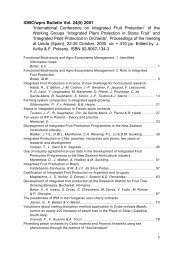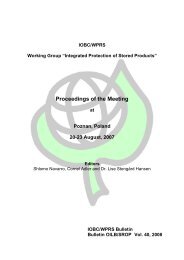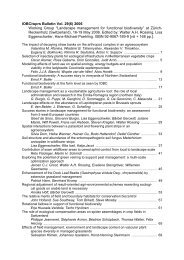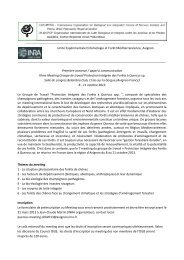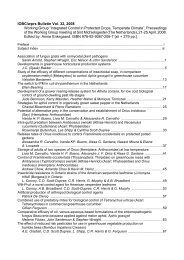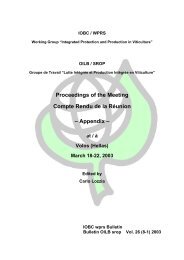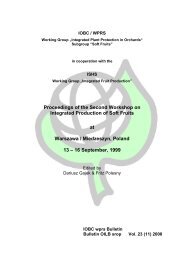Classical and augmentative biological control against ... - IOBC-WPRS
Classical and augmentative biological control against ... - IOBC-WPRS
Classical and augmentative biological control against ... - IOBC-WPRS
Create successful ePaper yourself
Turn your PDF publications into a flip-book with our unique Google optimized e-Paper software.
Heilig et al.<br />
In the sustainable use directive 2009/128/EC a number of provisions in favour of <strong>biological</strong><br />
pest <strong>control</strong> measures or non-chemical methods have been identified. The new regulation also<br />
mentions in recital 35 that priority should be given to "non-chemical <strong>and</strong> natural alternatives<br />
wherever possible" but since the definition of non-chemical methods refers to "physical, mechanical<br />
or <strong>biological</strong> pest <strong>control</strong>" <strong>and</strong> does not specifically mention microbials, semiochemicals, botanicals<br />
or other natural substances with non-toxic mode of action it must be clarified how those groups are<br />
covered by the definition.<br />
Conclusion<br />
In the meeting between the ENDURE delegation <strong>and</strong> representatives of the European<br />
Commission, the need for discussions between regulators, evaluators <strong>and</strong> industry about<br />
requirements especially those relevant for microbial <strong>and</strong> botanical substances was recognised.<br />
Article 77 of the new plant protection product regulation authorises the Commission to "adopt or<br />
amend technical <strong>and</strong> other guidance documents e.g. explanatory notes or guidance documents on<br />
the content of the application concerning micro-organisms, pheromones <strong>and</strong> <strong>biological</strong> products."<br />
Thus at least part of the problems experienced by applicants can be addressed in guidance<br />
documents. Industry representatives <strong>and</strong> companies directly concerned by evaluations or reviews of<br />
bio<strong>control</strong> agents should enter into discussions with evaluators (EFSA or Competent Authorities in<br />
Member States) without forgetting the leading role of the Commission. Industry should fix<br />
priorities, prepare rationales <strong>and</strong> make substantiated proposals dealing with data requirements<br />
considered inappropriate, unnecessary or unrealistic.<br />
44






